

Roofing SEO is different. In this guide, we break down exactly how to rank higher, get more leads, and grow your roofing business online—using proven, real-world strategies that work in 2025.
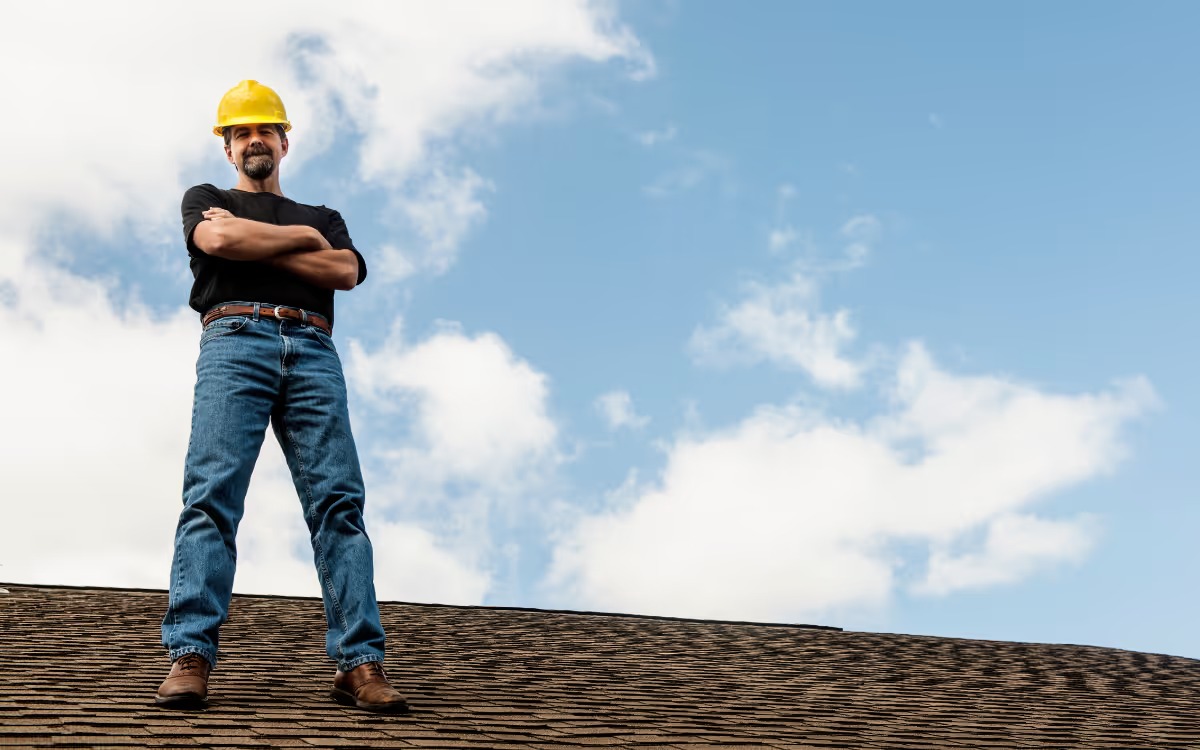
Roofing SEO Is Different — Here’s How to Get It Right
- Location + Service-Based Content
Create dedicated pages for each city and service to rank in local searches and drive real leads. - Blog Content That Builds Authority
Answer common roofing questions to build trust, rank for long-tail keywords, and boost your site’s credibility. - Google Business Profile Optimization
Post updates, respond to reviews, and choose the right categories to get found in Google’s local map pack. - Common Roofing SEO Mistakes
Avoid weak content, generic branding, and low-converting websites that kill your visibility and trust. - On-Page SEO Essentials
Use keywords naturally in your titles, content, and image alt text for higher rankings and better UX. - Link Building for Roofers
Earn high-quality, local backlinks through directories, sponsorships, and relevant guest posts. - Technical SEO Basics
Ensure fast load times, mobile responsiveness, and fix indexing issues that hurt your rankings. - Smart Keyword Strategy
Target service + city combos and low-competition suburbs to outrank big players and dominate locally. - Consistency Wins
SEO takes time — the contractors who publish, update, and stay active every month get the best results.
If you're a roofing contractor trying to win more business online, you’ve probably heard about SEO. But here’s the truth most SEO companies won’t tell you: Roofing SEO is different.
It’s hyper-local. It’s highly competitive. And unless your strategy is built specifically for how homeowners search for roofing services, you’ll end up wasting time and money.
At Savclicks, we’ve helped roofers go from barely visible online to dominating local search — and we do it with contractor-specific strategies that actually work. Here’s how you can do the same.
The Foundation: Location + Service-Based Content
Let’s start with the basics. Google wants to show local results — especially for services like roofing. That’s why location-specific landing pages are a must.
Each major city, suburb, or service area you cover should have its own dedicated page. And no, copying and pasting the same content doesn’t cut it. Each page needs:
- 500–700 words of original, helpful content
- A clear call to action (like “Request a Free Estimate”)
- Trust elements: real reviews, photos, certifications
Use “money keywords” — terms that signal buying intent — like “roof repair in Dallas” or “emergency roofer near me.” These are the searches that turn into leads.
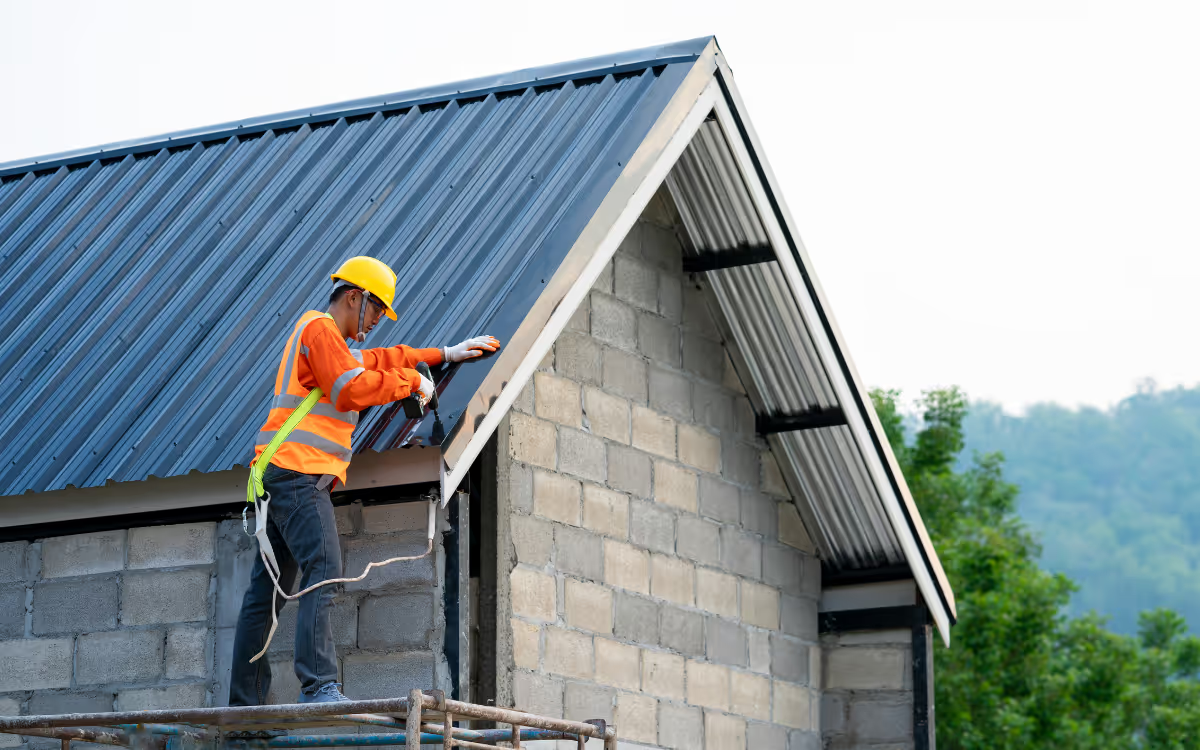
Blog Content That Builds Authority
You might not think a blog matters for a roofing company, but it’s one of the best ways to build authority and get long-tail traffic from Google.
Answer real customer questions. Write posts like:
- “How to Spot Roof Damage After a Storm”
- “Signs You Might Need a Roof Replacement”
- “How Long Does Asphalt Shingle Roofing Last?”
This type of content isn’t just good for SEO — it shows homeowners you know what you’re talking about. Structure each post with clear headings, use bullet points, add photos, and update them regularly.
Google loves fresh, comprehensive content. And so do your customers.
Google Business Profile: Your Secret Weapon
Want to show up in the “map pack” — the top 3 local results on Google Maps? Your Google Business Profile (GBP) is the key.
Here’s how to make yours work:
- Choose the right categories (e.g., “Roofing Contractor”)
- Add a detailed service area
- Post weekly updates with photos
- Respond to every review (yes, every one)
- Use relevant keywords naturally in replies
These simple actions add up fast. We’ve seen roofers double their calls just by staying consistent with their GBP.
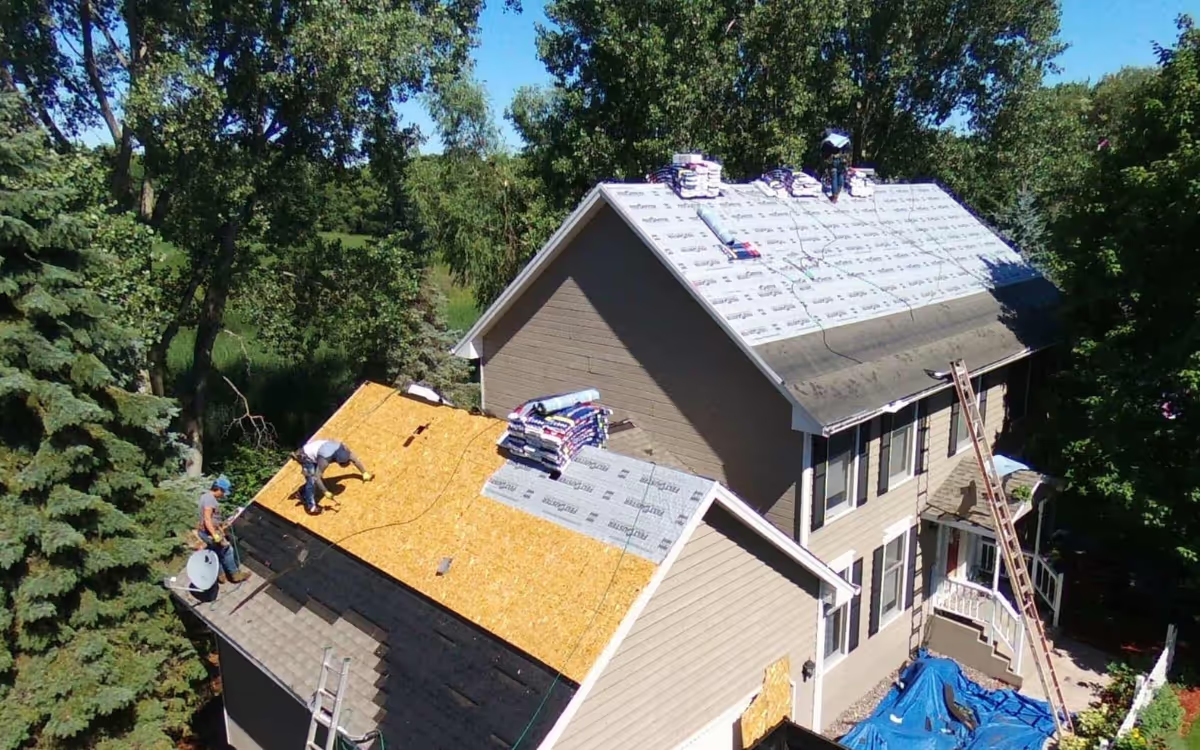
Common SEO Mistakes That Hold Roofers Back
If your site isn’t ranking — or getting leads — one of these might be the reason:
1. Generic brand names.
If your business is called “Quality Roofing,” Google doesn’t know which “Quality Roofing” you are. That kills your local SEO.
2. A website that doesn’t convert.
Getting traffic is great, but if your site doesn’t have trust signals (like reviews, photos, and clear contact info), people bounce.
3. Weak content.
Pages with thin text, no structure, and no images won’t rank — and they definitely won’t build trust.
On-Page SEO That Actually Matters
Want your content to rank? Start with on-page SEO:
- Use your target keyword in the meta title, description, and H1
- Sprinkle it naturally in the opening, middle, and end of your content
- Add alt text to every image
- Include the keyword in subheadings and internal links
Example: If you're targeting “roof repair in Atlanta,” make sure it's in your title tag, description, H1, and mentioned a few times throughout the page. Not forced — just naturally included.
Link Building Done Right
Not all backlinks are created equal. You don’t need hundreds — you need a few good ones.
Focus on:
- Niche-relevant directories (like roofing industry listings)
- Local citations (your Chamber of Commerce, local associations)
- Charity sponsorships that link back to your site
- Guest posts on blogs or news sites related to construction/home services
High-quality backlinks tell Google, “This business is trusted.” And that translates to better rankings — and more leads.
Technical SEO: A Quick Primer
Even the best content won’t perform if your site’s technical setup is a mess.
Here’s what to check:
- Page speed: Use tools like GTmetrix or PageSpeed Insights
- Mobile-friendliness: Most searches are on phones — your site better work on them
- Indexing: De-index thin content (like gallery pages with just a few words)
- No broken links or errors: Keep the backend clean
If a page has under 100 words, it’s probably not helping. Either bulk it up or hide it from Google.
Smart Keyword Strategy for Roofing
Forget trying to rank for “roofing Dallas” right away. Start by targeting the suburbs around your main city — where competition is lower, but intent is just as high.
Do a little research. Use tools like Ahrefs or SEMrush to spy on competitors in bigger markets. Look for:
- Low-difficulty, high-volume keywords
- Service-specific terms (e.g., “TPO roof repair”)
- FAQs people actually search (“Can hail damage my shingles?”)
Make a simple list:
City + Service, FAQs, product-based searches. Then build content around each.
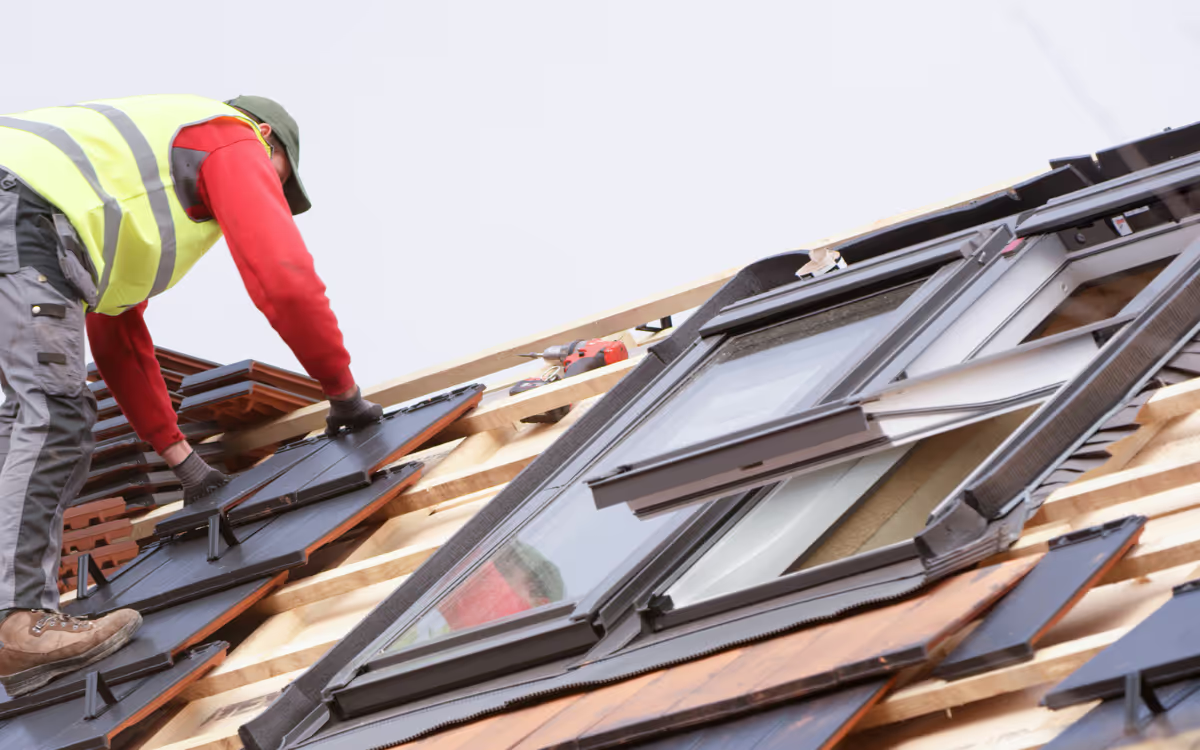
Final Thoughts: Consistency = Compounding Results
Here’s the big secret: SEO is not a one-time project.
The roofing companies seeing real growth are the ones who stick with it — publishing new content, updating their Google Business Profile, and earning high-quality links month after month.
At Savclicks, we’ve helped contractors go from barely getting found online to becoming one of the top players in their market. it's just proven strategies that work for real businesses in the trades.
If you want to turn your website into a steady stream of leads and establish your roofing business as the go-to name in your area, start by building a solid SEO foundation. And if you need a team that understands the roofing world inside and out — we're here when you're ready.
.avif)
FAQ
1. What makes roofing SEO different from regular SEO?
A: Roofing SEO is hyper-local and built around urgent, service-based search intent. Unlike national SEO or eCommerce strategies, roofers need to focus on ranking in specific cities and suburbs — where the competition is tough, and searchers are looking to hire now. That’s why strategies must be tailored to how homeowners actually search for roofing services.
2. Why do I need separate pages for each city I serve?
A: Google prioritizes local relevance, and a single generic service page won’t cut it. By creating individual landing pages for each city or neighborhood, with content that mentions local landmarks, services, and customer testimonials, you increase your chances of ranking higher in those areas — and getting more calls.
3. Do blog posts really help roofing companies?
A: Yes — and not just for SEO. Blogging helps answer common homeowner questions and builds trust. When done right, posts targeting long-tail search terms (like “how to spot hail damage on your roof”) can drive traffic for months or even years. Plus, they help boost your site’s overall authority in Google’s eyes.
4. How do I optimize my Google Business Profile?
A: Your Google Business Profile is one of the most important tools for local SEO. Choose the right category (“Roofing Contractor”), list all your services and service areas, post updates weekly, respond to every review, and include photos and relevant keywords in your replies. These small actions can lead to major boosts in visibility and phone calls.
5. What’s a “money keyword” and why does it matter?
A: A “money keyword” is a search term that shows someone is ready to take action — like “roof repair near me” or “emergency roofer in Charlotte.” These are different from research-based terms. Targeting money keywords helps you attract people who are ready to call or book an estimate right now.
6. Why isn’t my roofing website getting leads even though I have traffic?
A: High traffic doesn’t guarantee conversions. Many roofing sites lack trust-building elements like reviews, real photos, licenses, and a clear call to action. Without these, visitors may not trust your company enough to contact you — even if you rank well.
7. Do I need backlinks? What kind should I get?
A: Yes — but quality matters more than quantity. Focus on links from local sources (like Chamber of Commerce sites), industry-relevant blogs, or community sponsorships. Avoid cheap backlink schemes — they can hurt more than help. Google wants to see that real websites in your niche trust you.
8. What is technical SEO and should I worry about it?
A: Absolutely. Even great content can fail if your site loads slowly, isn’t mobile-friendly, or has indexing issues. Make sure your roofing site is fast, works on all devices, and doesn’t have broken pages. Tools like Google Search Console and GTmetrix can help you spot problems.
Let's get your online presence
working as hard as you do.
Schedule a call




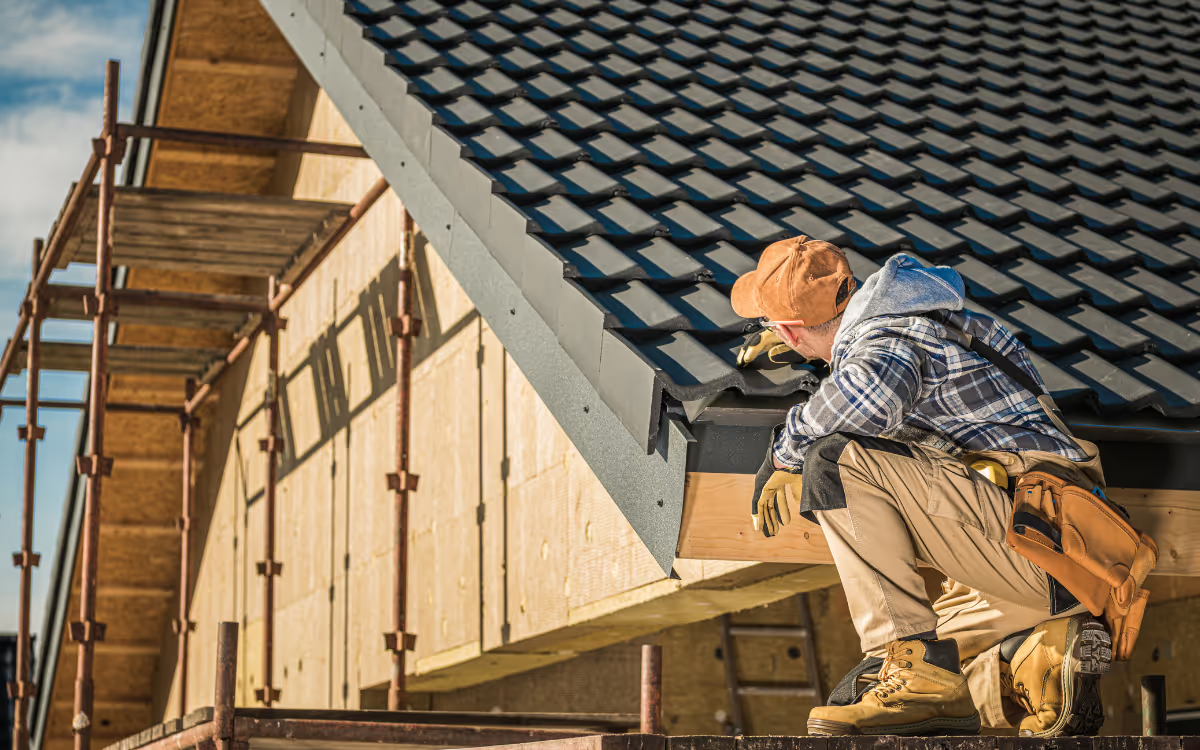


.svg)